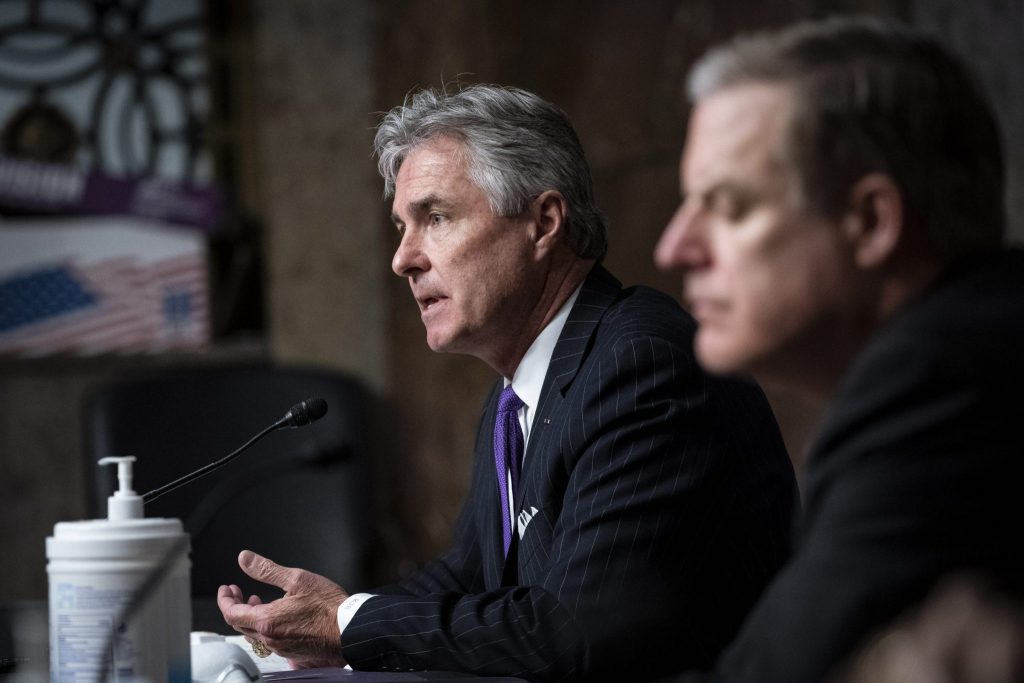If America loses its next war, the reason won’t be enemy firepower. It will be our failure to protect the intellectual property (IP) rights that fuel groundbreaking innovation.
Experts warn that to counter rising threats from China and other adversaries, the United States must stay ahead in defense-critical fields like artificial intelligence, drones, and quantum computing. But innovation requires investment, and investors won’t bet on new technology unless they’re confident their IP is secure. Put simply, without strong, enforceable IP rights, we risk crippling the R&D that keeps America safe.
Developing breakthrough technologies routinely takes years — sometimes decades — and billions of dollars. Success stories grab headlines, but most efforts end in failure. Patents provide a crucial incentive by giving creators exclusive rights to their inventions for a set period, ensuring that others cannot simply copy and profit from their hard work.
The importance of IP protections isn’t theoretical. Patents directly boost business growth, job creation, and technological advancement. A study reported on by the National Bureau of Economic Research found that a firm’s approval of its first patent leads to a 36% jump in employment growth and a 51% surge in sales over five years. Startups that win that first patent also innovate more, producing 49% more patents down the road.
These findings aren’t surprising. Without patent rights, an innovator could spend years developing a novel technology only to have a competitor swoop in and steal their invention at the eleventh hour. As a result, most startups would struggle to raise the outside investment necessary to bring promising — yet early-stage — ideas to fruition.
However, with a patent in hand, everything changes. Strong IP protections provide security, making investors more willing to support risky R&D efforts. The proof is in the numbers: Startups with patents secure, on average, almost 75% more funding from venture capital deals than those without, empowering them to refine and scale their innovations.
Our world-class patent system has fueled the development of countless life-enhancing, even life-saving, products ranging from medicines and renewable energy technologies to weapons-grade materials and powerful computer software. Strengthening it is the surest way to ensure that America leads in the technologies that will define the geopolitical landscape of the 21st century.
Trouble brewing
But there’s trouble brewing on the horizon. Instead of strengthening this proven system, some activists want to weaken it under the guise of “lowering prices.” Proposals to seize patents from universities and hand American-made technology to foreign competitors have undermined the private sector’s confidence in patents. Similarly, legal loopholes and outdated patent eligibility rules have made it harder for disruptive startups to protect their ideas from theft.
Meanwhile, China is taking the opposite approach, strengthening its system to gain a strategic advantage in mission-critical fields. Beijing has established specialized patent courts and tweaked eligibility rules to encourage investment in critical areas where U.S. patent law is lagging. They’ve also made a number of reforms to make it easier for inventors to assert their IP rights. By prioritizing innovation-friendly policies, China is positioning itself to outpace the U.S. in emerging technologies.
The consequences are clear. China now leads the United States in 57 of 64 key technology fields, according to a State Department-funded study from the Australian Strategic Policy Institute. Defense analysts warn that, if war broke out today, America’s technological disadvantage could be catastrophic.
Strengthening IP rights isn’t just about national security — it’s about economic security. IP-intensive industries drive 41% of U.S. economic output and account for 63 million jobs.
President Trump’s first-term national security strategy put it plainly: “A growing and innovative economy allows the United States to maintain the world’s most powerful military and protect our homeland.” More recently, he’s called for “reviv[ing] our Industrial Base, with priority on Defense-critical industries.”
President Trump is right: America’s ability to deter war — or win one, if a fight becomes inevitable — depends on regaining and then maintaining a technological edge.
His administration has the power to drive investment in new technologies that safeguard our national security. To do so, the administration must ensure that the United States issues strong, reliable, and enforceable IP rights and that companies can keep those rights once issued.
To do that, we must strengthen our patent system. That means stronger protections for inventors, fairer enforcement, and a renewed commitment — both in word and in deed — to promoting innovation. Our national security depends on it.
The opinions expressed in Fortune.com commentary pieces are solely the views of their authors and do not necessarily reflect the opinions and beliefs of Fortune.
This story was originally featured on Fortune.com







